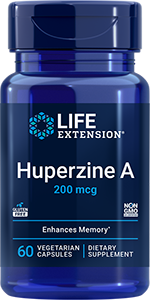- Science & Research
- Science News
- Newsletter
- 2012
- February 14

Newsletter
Newsletter
Greater Intake Of Calcium Vitamins Associated With Lower Colorectal Cancer Risk
Greater intake of calcium, vitamins associated with lower colorectal cancer risk
Tuesday, February 14, 2012. The February, 2012 issue of the journal Anticancer Research reports a lower risk for colorectal cancer in association with increased intake of calcium, vitamin C, vitamin D, vitamin B2 (riboflavin) and folate. Scientists from Canada and China matched 1,760 Canadian men and women with colorectal cancer with 2,481 control subjects. Dietary questionnaire responses were used to quantify the intake of calcium, iron, folate and vitamins A, B1, B2, B6, B12, C, D and E from food and supplements. The team observed diminishing odds of having colorectal cancer in association with increased intake of calcium, vitamin C, vitamin D, riboflavin and folate from dietary and supplemental sources. Those whose intake of calcium from supplements and food was among the top one-fifth of participants had a 41 percent lower adjusted risk of colorectal cancer compared to those whose intake was among the lowest fifth, and for riboflavin, the risk was 39 percent lower for subjects in the highest fifth. Having a greater intake of iron from food and supplements was associated with an increased risk of the disease, in regard to which the authors note that the mineral generates free radicals that attack DNA and damage chromosomes, which contributes to the risk of cancer. A reduction in risk was also observed for increased consumption of these nutrients when derived from food alone, although the decrease was not as great as that observed for food plus supplemental sources. "We observed that inverse associations of calcium, vitamin C, folate and colorectal cancer were mostly pronounced among users of individual supplements," Zhyoyo Sun and colleagues write. "One possibility is that the intake of micronutrients from supplemental sources additionally contributes to the differences between cases and controls, and adds to the total amount of micronutrient intake, making the protective effects more likely to be detected. Thus, we presume that using individual supplements that provide compensatory micronutrients may reduce risk for colorectal cancer." | ||||||||||||||||||||||||||||||||||||||||
 | ||||||||||||||||||||||||||||||||||||||||
| ||||||||||||||||||||||||||||||||||||||||
 | ||||||||||||||||||||||||||||||||||||||||
| ||||||||||||||||||||||||||||||||||||||||
| ||||||||||||||||||||||||||||||||||||||||
The latest news on aging, nutrition, and vitamins
Lab
Testing
How Life Extension lab testing works












